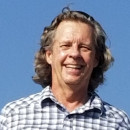Helping Level the Playing Field: Developing a “Lived Experience” Assessment
In this example of SHL’s commitment to inclusion, we share how we collaborated with a customer to develop an innovative assessment that would level the playing field for candidates with nontraditional lived experiences.
Share
Assessing Life Experiences to Foster Job-Related Skills
Our customer specializes in providing various county government services to individuals who experience a variety of challenging situations. These situations include circumstances like homelessness, unstable family structure, substance abuse, exploitation, prior incarceration, disabilities, among others. To fill their job roles, the customer wanted to be able to recruit individuals who had successfully worked through experiences similar to those of the people they served. They needed an assessment that could tap into the personal knowledge, insights, and understanding that individuals could gain through these nontraditional and challenging lived experiences. Such backgrounds could foster job-related skills and attitudes like empathy and understanding motivations for change that would drive high performance in role.
Re-Evaluating How Biodata is Used to Predict Job-Performance
Assessing life experiences and social identities that are predictive of job performance is not a new concept. Biodata assessments, which are built on the principle that personal history accounts for job-related differences in people, have been in use since the early 1900’s. However, historically biodata assessments have focused on what would generally be considered positive experiences and positive group associations. Typical items might be something like this:
- “How many books have you read in the last 6 months?”
- “Were you captain of a sports team at your school?”
- “To what extent did your parents encourage you to pursue a STEM interest?”
In this situation, the applicant pool of interest generally did not have access to the resources required to have these positive experiences. If your neighborhood is too under resourced for the schools to have a STEM (Science, Technology, Engineering, Mathematics) program, it is unlikely your parents encouraged you to pursue a STEM interest. Additionally, many in this applicant pool had negative group associations imposed upon them.
So, the goal of the project was to identify biodata items that would tap into aspects of these often culturally stigmatized lived experiences that would create opportunities to develop job-related skills, and therefore predict job performance. At the same time, we did not want to eliminate people who might have developed the same skills via more traditional lived experiences.
Applying Science to Ensure Equal Opportunities
Drawing on the insights and skills of the customer, current job incumbents with the lived experiences of interest, and of the SHL team resulted in an assessment that created a level playing field, demonstrating no meaningful differences on average scores across those with lived experiences and those without.
All involved were committed to protecting the privacy, dignity, and wellbeing of the incumbents who shared their lived experiences. This commitment allowed for honest insights that informed the development of job-relevant skills and, ultimately, the assessment itself. The application of scientific rigor to the assessment development process helped ensure that the assessment would provide all candidates with equal opportunity to demonstrate job-related skills and predict job performance.
In the end, the customer was provided with an experience-oriented assessment on which individuals with nontraditional backgrounds and more traditional backgrounds scored equivalently and that was predictive of job performance.
Personally, I must say that this project was one of the most challenging and most rewarding projects I have been involved with in my 18 years at SHL. I am pleased to be part of an organization that would devote the resources to develop an assessment to give individuals who come from nontraditional and challenging life experiences equal opportunity in their job journey by tapping into the skills they have developed through those experiences.
Learn more about SHL’s commitment to remaining focused on fairness, accessibility, and inclusion, to help organizations support Diversity, Equity, Inclusion, Belonging, and Accessibility (DEIBA) in their talent programs.









